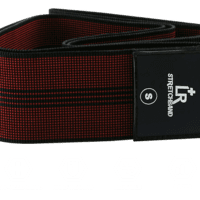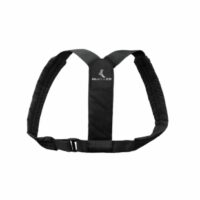
Article by Matthew Hewitt
Common Causes of Shoulder Pain: Anatomy and Treatment
The shoulder is an essential joint, offering unmatched mobility that supports everyday activities and athletic performance. However, its complex structure makes it prone to injuries and discomfort. Shoulder pain can affect anyone and may range from mild irritation to debilitating pain that hinders daily tasks.
Anatomy of the Shoulder
The shoulder joint combines bones, muscles, tendons, and ligaments to achieve its remarkable range of motion. The humerus (upper arm bone) fits into the scapula’s (shoulder blade) shallow socket, supported by the rotator cuff, labrum, and bursa. This intricate interplay allows fluid movement but increases the risk of injury.
Common Causes of Shoulder Pain
1. Rotator Cuff Issues
The rotator cuff consists of four small muscles and their tendons, which stabilise the shoulder. Overuse, age-related wear, or acute injuries can lead to tears, tendinopathy, or impingement. These conditions often cause pain, weakness, and restricted mobility. Read more: Rotator Cuff Injuries
2. Shoulder Bursitis
The bursa, a fluid-filled sac, cushions the tendons and reduces friction. Inflammation from repetitive motion or poor biomechanics can result in pain, swelling, and limited range of motion. Read more: Shoulder Bursitis
3. Labral Tears
The labrum is a soft tissue structure that helps stabilise the shoulder. Injuries like dislocations or repetitive stress can damage the labrum, leading to instability and recurring shoulder issues. Read more: Labrum Injuries
4. Fractures or Dislocations
Fractures to the humerus or scapula, often due to falls or trauma, are common in older adults. Dislocations occur when the joint is forced out of alignment, causing intense pain and requiring immediate medical attention. Read more: Shoulder Fractures | Shoulder Dislocation
Why Does Shoulder Pain Occur?
Shoulder pain is a widespread issue that can significantly affect your daily activities. Whether it's due to an injury, overuse, or an underlying condition, identifying the root cause is crucial for effective treatment and recovery. This FAQ page aims to address the most common causes of shoulder pain and guide you towards the next steps for managing your symptoms.
Shoulder pain can arise from various conditions and injuries, each affecting different parts of the shoulder joint and surrounding tissues. Understanding the cause of your shoulder pain is essential to finding the right treatment. The common causes include:
Rotator Cuff Issues
The rotator cuff stabilises your shoulder, but it’s prone to injury, especially with repetitive movements.
- Rotator Cuff Injury: Typically results from repetitive overhead activities, causing pain and weakness. Learn more about rotator cuff injuries.
- Rotator Cuff Tendinopathy: Involves inflammation or damage to the tendons, leading to reduced mobility. Explore rotator cuff tendinopathy.
- Rotator Cuff Tear: Often due to injury or age-related wear, resulting in severe pain and limited function. Understand rotator cuff tears.
Shoulder Impingement and Related Conditions
Shoulder impingement occurs when tendons are pinched, leading to pain during arm movements.
- Shoulder Impingement Syndrome: A condition where tendons are compressed, causing pain and limited mobility.
- Shoulder Bursitis: Inflammation of the bursa in the shoulder, leading to pain.
- Swimmer’s Shoulder: Common in swimmers, this overuse injury causes impingement symptoms.

How Does Shoulder Pain Develop?
Shoulder pain can develop gradually or suddenly, depending on the cause. Chronic conditions often lead to stiffness and limited movement, while acute injuries might cause immediate pain. Common conditions include:
Frozen Shoulder (Adhesive Capsulitis)
A condition causing stiffness and pain, often developing slowly.
- Adhesive Capsulitis / Frozen Shoulder: Gradual onset of stiffness and pain, often without a specific cause.
- Shoulder Arthritis: Degenerative joint disease leading to pain and stiffness.
Shoulder Instability
Instability in the shoulder can result in recurrent dislocations or subluxations, causing ongoing pain.
- Shoulder Dislocation: Occurs when the joint is forced out of position.
- Functional Shoulder Instability: Chronic instability leading to recurrent issues.
What Should You Do Next?
If you’re experiencing shoulder pain, the best course of action is to seek advice from a physiotherapist or doctor. They can provide a thorough assessment and develop a personalised treatment plan. This might include exercises, manual therapy, or even surgery if necessary.
Post-Operative Shoulder Rehabilitation
Recovery after shoulder surgery is crucial to regain full function.
- Subacromial Decompression: A procedure to relieve impingement symptoms.
- Rotator Cuff Repair: Surgical repair to address torn rotator cuff muscles.
- Post-Operative Shoulder Rehabilitation: Tailored exercises to aid recovery after surgery.
Read more: Post-op Shoulder Rehab
Risk Factors
- Age: Wear and tear increases with age.
- Repetitive Activities: Sports like swimming or overhead movements heighten the risk.
- Posture: Poor posture strains shoulder muscles and tendons.
Diagnosis and Tests
Your physiotherapist or doctor shoulder conduct a thorough assessment, which may include:
- Physical examination including a spectrum of specific and general shoulder tests.
- Imaging tests like X-rays, MRIs, or ultrasounds.
- Strength, instability and range of motion tests.
- Technique or movement pattern evaluation, plus more.
Treatment Options
- Physiotherapy: Tailored exercises to strengthen the rotator cuff and stabilise the shoulder.
- Medications: Anti-inflammatory medications or injections to reduce pain and swelling. eg bursitis
- Surgery: Reserved for severe injuries like full thickness rotator cuff tears or fractures.
Prevention Strategies
- Regular strengthening and flexibility exercises.
- Maintaining good shoulder and scapulothoracic posture.
- Avoiding high-risk repetitive, high-load or overhead motions.
Long-Term Management
Physiotherapy, combined with lifestyle adjustments, plays a key role in managing chronic shoulder conditions. Regular exercise and avoiding reinjury are critical for long-term health.
What to Do Next?
If shoulder pain disrupts your life, consult a physiotherapist or doctor for a comprehensive assessment. Early intervention ensures the best outcomes.
Rochedale - Call 38410277
Book Online: RochedaleSalisbury - Call 32751044
Book Online: SalisburySandgate - Call 32691122
Book Online: SandgateShoulder Pain FAQS
- Why does my shoulder hurt when I lift my arm?
Lifting your arm can pinch tendons or muscles, often due to shoulder impingement or rotator cuff issues. - How can I treat shoulder pain at home?
Rest, ice, and gentle stretching can help, but professional assessment is recommended for persistent pain. - What are the signs of a rotator cuff tear?
A rotator cuff tear typically causes pain, weakness, and difficulty lifting your arm above your head. - Where can I get treatment for shoulder pain?
Consult a physiotherapist for a tailored treatment plan that may include exercises, manual therapy, or surgery. - When should I see a doctor for shoulder pain?
See a doctor if you experience severe pain, sudden inability to move your shoulder, or if the pain persists despite rest. - What is the most common cause of shoulder pain?
Rotator cuff injuries are the most common cause, often resulting from repetitive overhead activities.
Related Articles
- Rotator Cuff Injury: Causes and Treatment
Explore the common causes and treatment options for rotator cuff injuries. - Shoulder Impingement Syndrome: Symptoms and Recovery
Learn about the symptoms and how to recover from shoulder impingement. - Frozen Shoulder: What You Need to Know
Understand the signs and treatments for frozen shoulder. - Shoulder Arthritis: Managing Pain and Stiffness
Discover ways to manage the pain and stiffness associated with shoulder arthritis. - Shoulder Dislocation: Treatment and Prevention
Learn how to treat and prevent shoulder dislocations. - Post-Operative Shoulder Rehabilitation
Find out what to expect during post-operative rehabilitation for shoulder surgery. - AC Joint Injury: Causes and Treatment
Understand the causes and treatment options for AC joint injuries. - Biceps Tendinopathy: Symptoms and Treatment
Learn about the symptoms and treatment of biceps tendinopathy. - Shoulder Bursitis: Causes and Treatment
Explore the causes and treatment options for shoulder bursitis. - Shoulder Pain: Causes, Treatments, and When to See a Doctor
Discusses various causes of shoulder pain and when you should consult a doctor. - Shoulder Pain: Diagnosis and Treatment
Offers an in-depth look at the diagnosis and treatment of shoulder pain. - Understanding Shoulder Pain and Its Treatments
Explains shoulder pain causes and treatment options, including when surgery is necessary.











































































